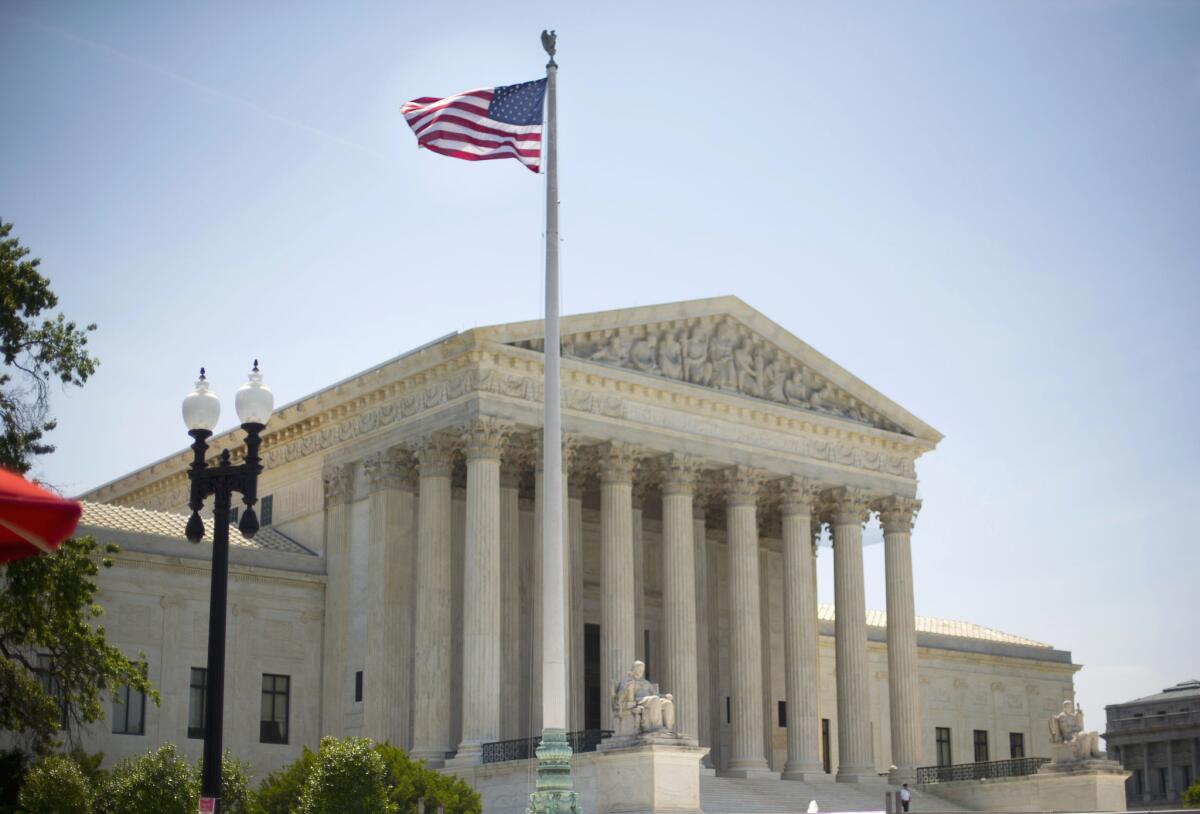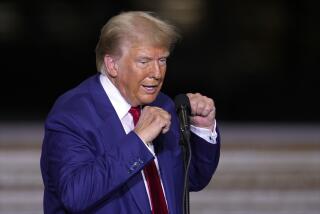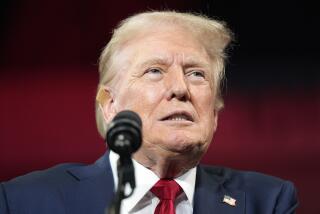House attorneys say Trump’s tax returns are needed for impeachment inquiry

The Supreme Court building in Washington.
WASHINGTON — Lawyers for the House, citing the “rapidly advancing impeachment inquiry,” urged the Supreme Court on Thursday to reject President Trump’s bid to shield his tax returns and financial records from congressional investigators.
The new focus on impeachment came as the justices were set to meet Friday to decide how to proceed in two cases involving Trump’s taxes. In both, judges rejected the president’s claim of “absolute immunity” and upheld subpoenas that would require Trump’s accountants to turn over eight years of records to a House oversight panel and to a New York grand jury.
Last week, Trump’s lawyers asked the Supreme Court to review those rulings and to put the cases on hold. Chief Justice John G. Roberts Jr. issued a temporary order to preserve the status quo while the justices consider what to do.
The California Supreme Court strikes down requirement that presidential primary candidates submit five years of income tax filings for a spot on state ballot.
On Thursday, House Democrats argued their demand for Trump’s finances stands on stronger ground now than it did when the records were first sought in April. And they did so by relying on an argument put forth by Judge Neomi Rao, a new Trump appointee on the U.S. Court of Appeals for the District of Columbia.
She dissented on Oct. 11 when the appeals court, by a 2-1 vote, upheld the subpoena and said the oversight panel had broad authority to investigate and to seek documents from government officials, including from the president. The majority said the investigations were an aspect of Congress’ power to legislate.
Rao disagreed and said Congress could not rely on its “legislative power” to conduct such an investigation, which involves “allegations of illegal conduct against the president.... It has not invoked Congress’ impeachment power to support this subpoena.... Allegations that an impeachable official acted unlawfully must be pursued through impeachment.”
In his response, House general counsel Douglas N. Letter said the subpoena should be upheld as “valid and enforceable” because the oversight panel was looking into the “accuracy of President Trump’s financial disclosures,” the “federal lease to Trump Old Post Office” that is now the Trump International Hotel, and “possible violations of the Emolument Clauses” of the Constitution, which forbid foreign gifts to the president.
“Finally, there is an additional reason that the case is not fit for the court’s review: the House is now engaged in an impeachment inquiry which would, under ... Judge Rao’s theory, justify the subpoena issued here,” he wrote.
Letter also urged the court to act quickly to deny the appeal, rather than spend weeks or months agreeing to review the validity of the subpoena.
Such a delay could nullify the possibility that the financial records would figure in the impeachment inquiry. “The president certainly has no right to dictate the timetable by which third parties provide information that could potentially be relevant to that inquiry,” he wrote.
The justices could deny the appeals in both cases, dealing a sharp defeat to Trump. Or they could ask the lawyers on both sides to file briefs in time for the justices to decide in mid-December whether to hear one or both cases. If they agree then to review the lower-court rulings, that decision would likely put off a ruling until late spring.
The New York case is called Donald Trump vs. Cyrus Vance, and the case in Washington is Trump vs. Mazars USA and Committee on Oversight.
More to Read
Get the L.A. Times Politics newsletter
Deeply reported insights into legislation, politics and policy from Sacramento, Washington and beyond. In your inbox three times per week.
You may occasionally receive promotional content from the Los Angeles Times.












